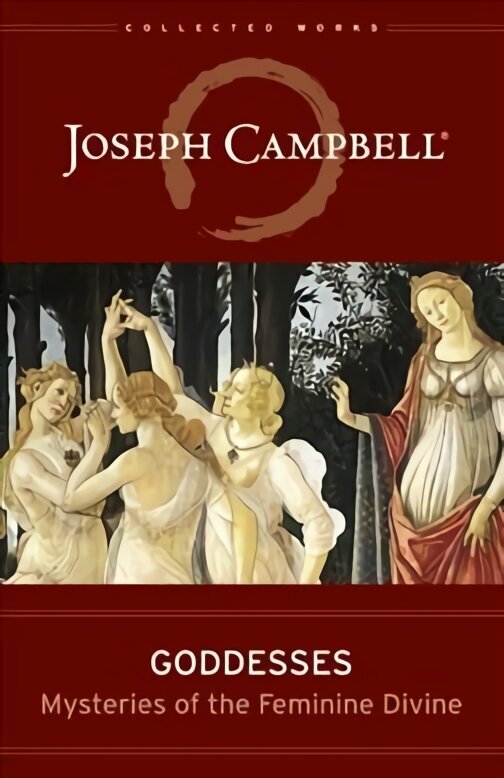"Previously uncollected lectures and writings that trace the evolution of the Goddess, from Neolithic Old Europe to the Renaissance, and interpret classical motifs. Offers insight into self-actualization for women. Edited and introduced by the executive director of the Opus Archives and Research Center"--Provided by publisher.
Presents a collection of lectures and writings that trace the evolution of the goddess, from Neolithic Old Europe to the Renaissance, interpreting classical motifs and offering insight into the self-actualization of women.
Previously uncollected lectures and writings trace the evolution of the Goddess, from Neolithic Old Europe to the Renaissance, and interpret classical motifs, offering insight into self-actualization for women. 20,000 first printing.
Editor Rossi presents lectures by comparative mythology scholar Joseph Campbell originally given in the 1970s-80s on the Great Goddess, particular goddesses, and the religious theme of feminine divinity. Campbell's lectures draw on archaeological, linguistic, and mythological evidence to create a narrative of feminine deities as representations of nature, transformation, and arbiters of love and sexuality. Neolithic artifacts, Sumerian and Egyptian goddesses, the Greek pantheon, the Iliad and Odyssey, the Virgin Mary, and the story of Tristan and Iseult are analyzed. The discussion of the Greek epics and the Virgin Birth particularly explore the way that characters from older goddess-centric cultures have been adapted to patriarchal narratives. Captioned cross-citations and an appendix from the editor offer further resources on goddess studies that have developed since Campbell's death in 1987. Annotation ©2014 Book News, Inc., Portland, OR (booknews.com)
Joseph Campbell brought mythology to a mass audience. His bestselling books, including The Power of Myth and The Hero with a Thousand Faces, are the rare blockbusters that are also scholarly classics.While Campbell’s work reached wide and deep as he covered the world’s great mythological traditions, he never wrote a book on goddesses in world mythology. He did, however, have much to say on the subject. Between 1972 and 1986 he gave over twenty lectures and workshops on goddesses, exploring the figures, functions, symbols, and themes of the feminine divine, following them through their transformations across cultures and epochs.In this provocative volume, editor Safron Rossi?a goddess studies scholar, professor of mythology, and curator of collections at Opus Archives, which holds the Joseph Campbell archival manuscript collection and personal library?collects these lectures for the first time. In them, Campbell traces the evolution of the feminine divine from one Great Goddess to many, from Neolithic Old Europe to the Renaissance. He sheds new light on classical motifs and reveals how the feminine divine symbolizes the archetypal energies of transformation, initiation, and inspiration.
Joseph Campbell brought mythology to mass audiences, most notably in his conversations with Bill Moyers on PBS. In print and on television, his accessible and conversational tone riveted without ?dumbing down.” His best-selling books, including The Power of Myth and Hero with a Thousand Faces are the rare blockbusters (well over a million copies sold) that are also scholarly classics. While Campbell ?covered the mythological waterfront,” he never focused a work on the Goddess. This, however, does not mean he didn’t have fresh and exciting things to say. In this provocative volume, he traces the evolution of the Feminine Divine from one Great Goddess to many, from Neolithic Old Europe to the Renaissance. He sheds new light on classical motifs and recognizes what is resonant in our day: that ?the challenge is to flower as individuals, neither as biological archetypes, nor as personalities imitative of the male.”
